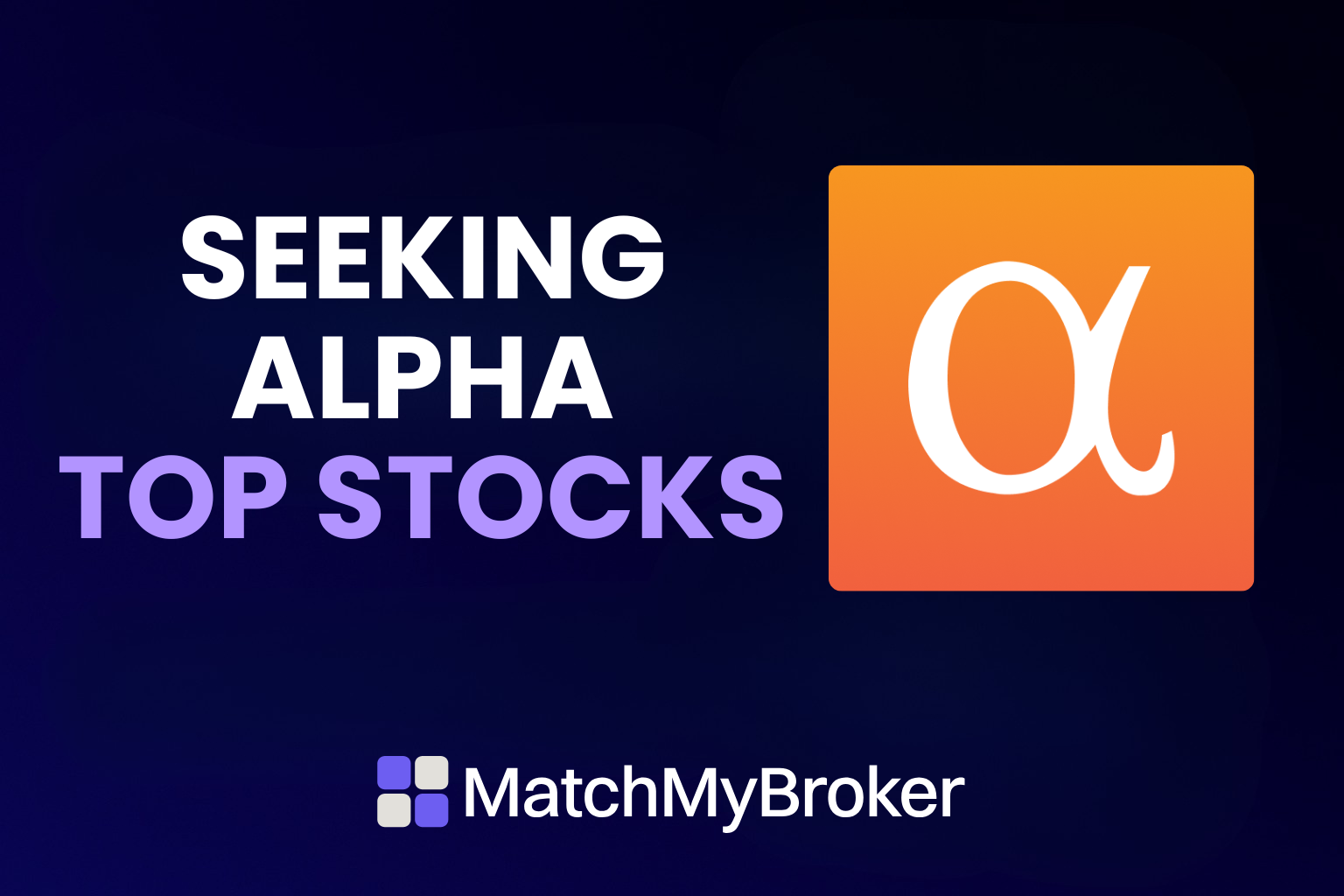How to Choose the Best Stock Broker: A Step-by-Step Guide


Selecting the right stock broker is one of the most important decisions you'll make as an investor. Whether you're just starting out or looking to switch platforms, this choice can significantly impact your investing experience and even your returns. This guide will walk you through everything you need to consider when choosing a stock broker that fits your unique needs.
Why Your Choice of Broker Matters
The broker you select affects more than just the fees you pay. It determines which investments you can access, the tools available to analyze them, and the overall experience of managing your portfolio. A broker that aligns with your investing style can make the difference between a frustrating experience and a seamless one.
Step 1: Understand Your Investment Goals
Before comparing brokers, take some time to clearly define what you want to achieve with your investments:
- Are you investing for retirement, a home purchase, or general wealth building?
- Do you prefer passive, long-term investing or more active trading?
- How much capital do you plan to start with?
- How often do you expect to make trades?
Your answers to these questions will help narrow down which broker features matter most to you.
Step 2: Evaluate Fees and Commissions
While many brokers now offer commission-free trading for stocks and ETFs, other fees can still impact your returns.
Key Fee Considerations:
- Zero-Commission Trading: While free stock and ETF trades are now standard, understand how brokers make money when they don't charge commissions (payment for order flow, interest on cash balances, premium services).
- Options Fees: If you plan to trade options, compare per-contract fees, which typically range from $0 to $0.65.
- Account Minimums: Some brokers require a minimum deposit to open an account, while others have no minimum.
- Hidden Fees: Look for withdrawal fees, inactivity fees, and account transfer fees that might not be immediately obvious.
Step 3: Compare Investment Options
Different brokers offer varying selections of investment products:
- Stocks and ETFs: All brokers provide access to publicly traded stocks and ETFs, but international stock access varies widely.
- Mutual Funds: The selection and associated fees can differ significantly between brokers.
- Bonds and Fixed Income: Some platforms have limited fixed-income offerings or higher markups.
- Options and Futures: If you're interested in derivatives trading, ensure your broker offers these with competitive pricing.
- Cryptocurrencies: Not all traditional brokers offer crypto trading. Those that do may charge higher fees compared to dedicated crypto exchanges.
- Fractional Shares: This feature allows you to buy portions of expensive stocks, making diversification possible with smaller amounts of money.
Step 4: Assess the Trading Platform
The trading platform is your primary interface with the market, so its quality significantly impacts your experience.
Desktop Platform:
- Is the interface intuitive and easy to navigate?
- Does it offer robust charting tools with various technical indicators?
- Are there screening tools to help find investment opportunities?
- How customizable is the platform to suit your preferences?
Mobile Experience:
- Does the broker offer a full-featured mobile app?
- Can you perform all essential functions on mobile, or just basic operations?
- Is the app well-designed and reliable during market hours?
Step 5: Research Account Types and Features
Brokers offer various account types to accommodate different investing goals:
- Individual Brokerage Accounts: Standard taxable accounts for general investing
- Joint Accounts: Shared accounts for couples or partners
- Retirement Accounts: Traditional IRAs, Roth IRAs, and rollovers from 401(k)s
- Specialized Accounts: Custodial accounts for minors, trust accounts, etc.
Additional Features to Consider:
- Margin Trading: The ability to borrow money from your broker to increase buying power (comes with additional risks)
- Cash Management: Features like interest on uninvested cash, debit cards, or check writing
- Dividend Reinvestment Plans (DRIPs): Automatic reinvestment of dividends into additional shares
- Tax-Loss Harvesting: Tools to help optimize your tax situation
Step 6: Evaluate Safety and Security
Your broker should prioritize the protection of your investments and personal information:
- Regulatory Compliance: Verify the broker is registered with the SEC and is a member of FINRA
- SIPC Insurance: Ensures protection of up to $500,000 in securities and cash (up to $250,000 cash) if the brokerage fails
- Additional Insurance: Some brokers offer protection beyond SIPC limits
- Security Features: Two-factor authentication, biometric login, and encryption protocols
Step 7: Consider Customer Service and Support
Quality customer service becomes crucial when you encounter issues or have questions:
- Support Channels: Check if the broker offers phone, email, chat, and in-person support
- Hours of Availability: Some brokers offer 24/7 customer service, while others have limited hours
- Response Time: Read reviews to gauge how quickly the broker typically responds to inquiries
- Knowledge Base: A comprehensive self-help section can be valuable for quick answers
Step 8: Assess Educational Resources
Especially important for beginners, but valuable for all investors:
- Learning Center: Articles, videos, and tutorials covering investing basics and strategies
- Webinars and Events: Live or recorded educational sessions
- Demo Accounts: Practice accounts that let you test strategies without risking real money
- Research Tools: Stock screeners, market analysis, and expert insights
Step 9: Read Reviews and Ratings
Don't rely solely on a broker's own marketing materials:
- Third-Party Reviews: Check professional reviews from financial websites
- User Feedback: Read reviews from actual customers across multiple platforms
- Industry Awards: Look for brokers that have received recognition for their services
- Regulatory Record: Check for any disciplinary actions through FINRA's BrokerCheck
Step 10: Test Before Committing
Before fully committing to a broker:
- Demo Accounts: Use any available practice accounts to test the platform
- Customer Service Test: Contact customer support with a few questions to gauge their responsiveness and knowledge
- Start Small: Consider starting with a smaller deposit until you're comfortable with the platform
Step 11: Make Your Final Decision
After thorough research, weigh all factors based on your personal priorities. Remember that the "best" broker is subjective and depends on your specific needs.
Use a decision matrix to compare your top choices across the factors that matter most to you. Assign weights to each factor based on their importance to your investing style.
Top Brokers to Consider
While the right broker depends on your specific needs, some consistently rank highly in multiple categories:
- Interactive Brokers: Best for advanced traders and international investing
- eToro: Outstanding for social trading and cryptocurrency options
- Trading 212: Excellent for beginners with commission-free trading
Read our comprehensive reviews of these top brokers or use our broker matching tool to find your perfect fit.
Final Thoughts
Choosing the right stock broker takes time and research, but it's worth the effort. Your broker will be your gateway to the financial markets, so finding one that aligns with your goals and preferences is crucial for your investing success.
Remember that as your needs evolve, it may be appropriate to reassess your broker choice. Many investors maintain accounts with multiple brokers to leverage the strengths of each platform.
By following this step-by-step guide, you'll be well-equipped to make an informed decision and begin your investing journey with confidence.
Frequently Asked Questions
Are online brokers safe?
Yes, reputable online brokers are regulated by organizations like the SEC and FINRA and offer SIPC protection for your investments up to $500,000. Look for brokers that implement strong security measures like two-factor authentication and encryption.
What's the difference between a discount broker and a full-service broker?
Discount brokers typically offer lower fees and focus primarily on trade execution, while full-service brokers provide personalized investment advice and wealth management services at a higher cost.
How much money do I need to start investing with a broker?
Many online brokers now offer accounts with no minimum deposit requirement, allowing you to start investing with whatever amount you're comfortable with. Some even offer fractional shares, so you can invest in expensive stocks with small amounts of money.
Can I have accounts with multiple brokers?
Yes, many investors maintain accounts with different brokers to take advantage of each platform's unique strengths. If you do use multiple brokers we would recommend to use a portfolio tracking tool like Delta or getquin.
What happens if my broker goes out of business?
If your broker is SIPC-insured, your securities and cash (up to $500,000, including $250,000 in cash) are protected if the broker fails. This doesn't protect against market losses, only against the broker's insolvency.
Can I transfer my investments if I switch brokers?
Yes, most brokers allow for an "in-kind" transfer of investments through the ACATS (Automated Customer Account Transfer Service) system, so you don't have to sell your positions and potentially trigger tax consequences.


.png)